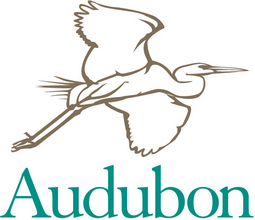Audubon's Seabird Restoration Program manages seven island research stations off the coast of Maine that support breeding colonies for Arctic, Common, Roseate, and Least Terns, Atlantic Puffins, Black Guillemots, Razorbills, Laughing Gulls, Common Eiders, Leach’s Storm-Petrels, and wading birds. Work includes, but is not limited to: managing multiple concurrent seabird research projects; training and supervising Research Assistants, interns, and volunteers; creating daily work schedules; monitoring seabird populations, productivity, and growth; conducting seabird diet studies; banding and resighting birds; removing invasive vegetation; educating island visitors; conducting predator management; data entry and proofing; preparing a season report; camp maintenance; and coordinating logistics with mainland staff.
Primitive camping and working on offshore islands are required. At each island, a cabin or wall tent serves as the base of field operations, and field team members sleep in their own tents. Island field stations have limited electricity (solar panels power research needs), propane stoves, composting toilets, and no running water (rainwater is collected for washing; drinking water is brought from the mainland). Communications with the mainland are via cell or VOIP phone, depending on location, with VHF radios as back-up. Island field teams consist of 2 to 5 people (depending on island and time of year) and are led by the Island Supervisor. All field team members participate in seabird research and camp maintenance duties. For the welfare of the birds, field work is highly weather-dependent. The work week may stretch across seven days. Days can be long and weekend work may be required.
Island work schedule and daily duties are determined by the Island Supervisor, following established work plans and procedures. Daily schedules will vary based on weather (no entry into the seabird colony is permitted during inclement weather to protect the nesting terns) and time of the nesting season (when tern chicks are fully feathered, entry into the colony is less restrictive). Daily activities may include the following: island-wide morning bird count at 0600 hours; collection of weather data three times per day; one to two 3-hour “stints” in the observation blinds for data collection; seabird trapping and banding; productivity monitoring; trail maintenance; invasive plant removal; predator control; computer data entry; daily journal log entries; and maintenance of camp facilities.
Island Supervisors will spend the entire field season living on island. Supervisors working on inshore islands (3 of the 7 islands) will have the ability to go ashore (about every 1-2 weeks) to procure food and supplies for the field station. Inshore Island Supervisors must possess a valid driver’s license, and a personal vehicle is desirable. On offshore islands, food and supplies will be delivered approximately every two weeks, and supervisors are responsible for submitting a grocery/supply list prior to scheduled deliveries.
Food and worker’s compensation insurance are provided. Island Supervisors must provide their own binoculars, sleeping bag, sleeping pad, and 2-person tent.
7 positions are available and will start between May 1 and May 21, depending on site, and end on August 15 or August 30. For further information on the Seabird Restoration Program and research islands, visit http://projectpuffin.audubon.org/island-research-program.
- Manage multiple concurrent seabird studies as directed by the Sanctuary Manager, which may include, but are not limited to: bird trapping, banding, and resighting; observations from blinds; conducting seabird diet studies; conducting nest censuses; monitoring productivity and growth of chicks; computer data entry; blood or specimen collection; vegetation management; predator monitoring and control;
- Draft daily work schedules for the field station;
- Train research assistants and volunteers on essential field and computer skills and proper use of binoculars and spotting scopes;
- Oversee and participate in data collection and management;
- Conduct visitor education (public visitation varies widely by island);
- Protect the seabird colony from human disturbance;
- Conduct predator management or control as necessary;
- Coordinate logistics with mainland staff;
- Ensure personnel safety at remote field camp;
- Safely and responsibly use power or row boats, ensuring all personnel wear personal flotation devices as required by NAS;
- Maintain and properly care for NAS-issued equipment, including spotting scopes, cameras, GPS, cell phones, radios, rifles, and other research equipment;
- Maintain electrical equipment, such as solar power systems and sound broadcasting systems, in working order;
- Inventory all island equipment at the end of the season and report any equipment loss, breakage, or failure;
- “Winterize” and secure the field station at season’s end and report any facility maintenance or repairs required;
- Prepare a short field season summary for oral presentation at the August Gulf of Maine Seabird Working Group meeting;
- Write an end of season report summarizing results of field work, data collected, and management activities, for submission to the Sanctuary Manager by the specified date.
- Be in excellent physical condition (capable of climbing over rugged terrain and slippery rocks and able to lift approximately 50 lbs.) and have wilderness camping experience;
- Bird banding experience;
- Ability to work independently and as part of a team, and to get along with people of diverse backgrounds.
- Capable of working long hours outdoors in variable weather conditions;
- Comfortable on the water in small boats; rowing experience is helpful;
- For supervisors on inshore islands, experience operating small motorboats is required, and a personal vehicle may be necessary for these positions. Supervisors on offshore islands will not operate motorboats.
- Experience with the following: spotting scopes, binoculars, bird banding equipment, camping equipment (e.g. tents, composting toilets, etc), basic hand tools (e.g. hammer, drill driver, etc).
- A sense of humor, dedication to wildlife conservation, and passion for seabirds and isolated islands;
- Must provide own binoculars, tent, sleeping pad, and sleeping bag.
Highly Desirable:
- Previous experience leading and training field crews;
- Experience with predator control, hunting and/or trapping;
- Experience with the following: outboard engine care/basic maintenance, inflatable boat repair, boat safety equipment, solar power systems, and VHF radios.
